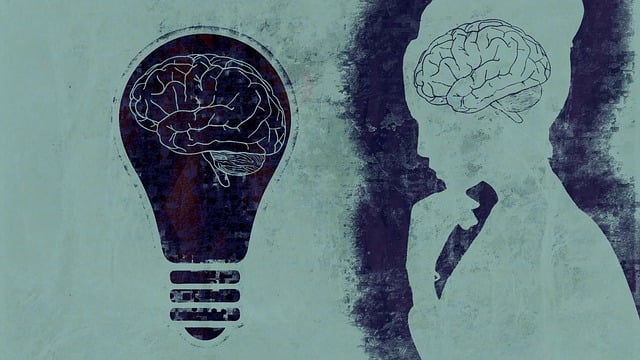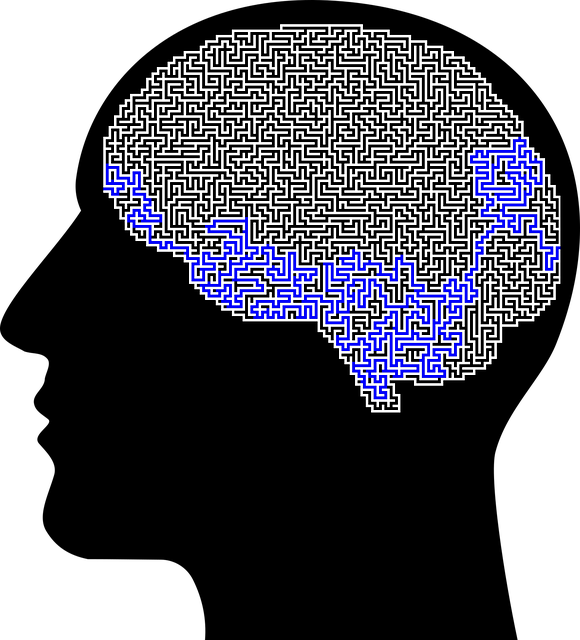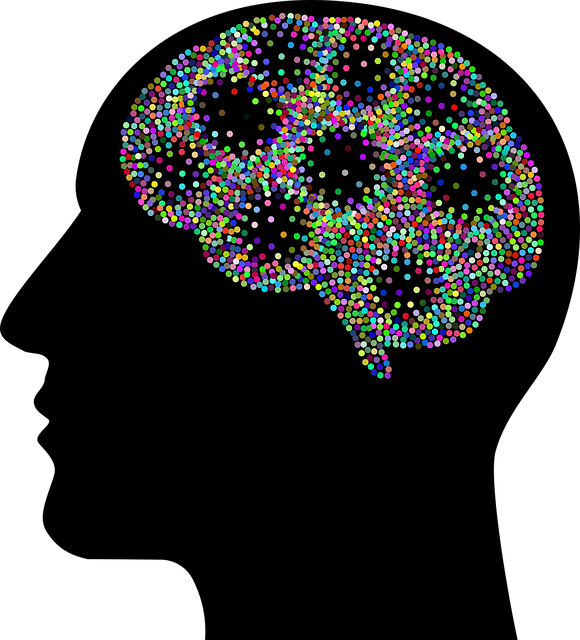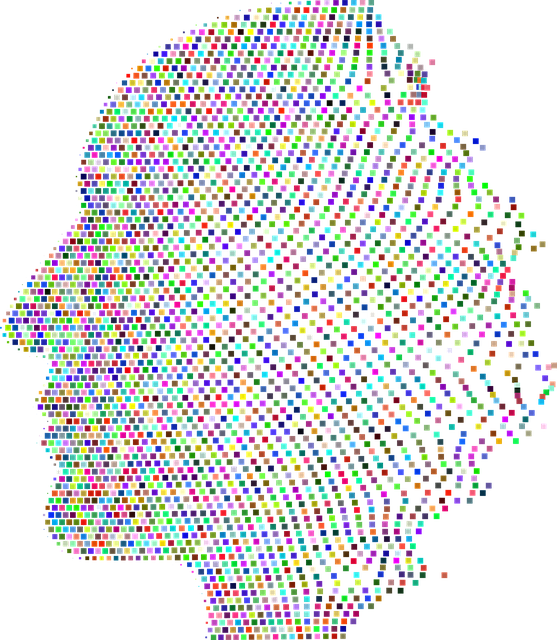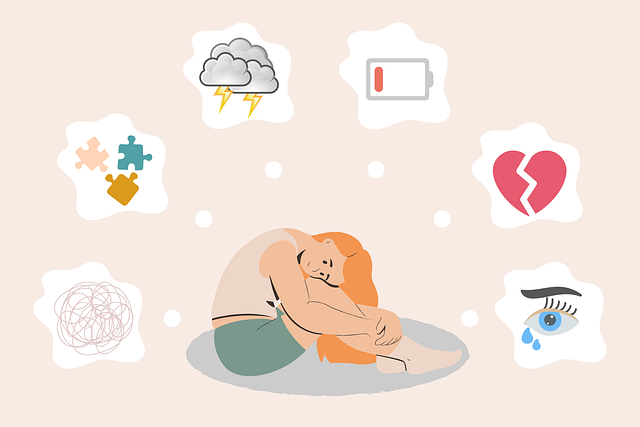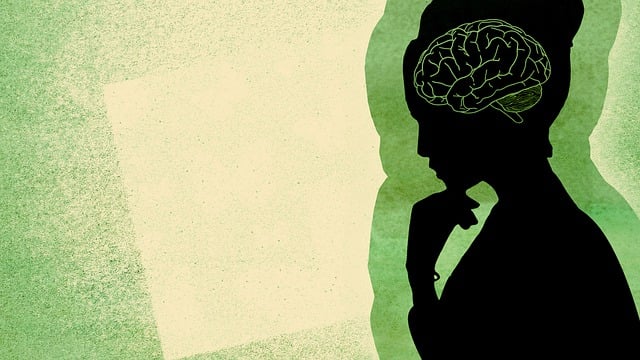Dissociative disorder in elders is a complex condition requiring specialized therapy, such as Cognitive Behavioral Therapy (CBT) and Eye Movement Desensitization and Reprocessing (EMDR), to address dissociation and trauma. Group therapy, self-care, and public awareness campaigns are key components of holistic treatment. CBT has proven effective for seniors with various mental health issues, including dissociative disorders. Community support systems and senior centers play vital roles in promoting well-being. Comprehensive approaches combining therapy, peer groups, and community engagement significantly improve quality of life for aging individuals with mental illness.
Mental illness diagnosis and treatment navigation can be complex, especially for conditions like dissociative disorder, which often remain under-recognized. This comprehensive guide explores understanding dissociative disorder, its symptoms, and diagnostic processes. We delve into the critical role of therapy in treating this condition, focusing on effective approaches tailored to elders. Additionally, we navigate available treatment options and emphasize support systems and resources specifically designed for aging individuals facing mental health challenges, with a particular emphasis on therapy for elders with dissociative disorder.
- Understanding Dissociative Disorder: Symptoms and Diagnosis
- The Role of Therapy in Treating Dissociative Disorders
- Navigating Treatment Options for Elders with Dissociative Disorder
- Effective Therapy Approaches for Elderly Patients
- Support Systems and Resources for Aging Individuals with Mental Health Challenges
Understanding Dissociative Disorder: Symptoms and Diagnosis

Dissociative Disorder is a complex mental health condition often characterized by a disconnection from reality and one’s own identity. This can manifest in various symptoms, including detached feelings from one’s surroundings, amnesia or memory lapses, and altered states of consciousness. Individuals with this disorder may experience a sense of detachment from their bodies, emotions, or even entire aspects of their lives. The condition is often triggered by severe trauma or distressing life events, making it particularly relevant in the context of therapy for elders who have experienced significant challenges throughout their lives.
Diagnosis involves a comprehensive evaluation by qualified mental health professionals. They will assess symptoms, conduct interviews, and review medical history to distinguish Dissociative Disorder from other conditions. Key indicators include persistent dissociative episodes, difficulty integrating memories, and identity confusion. Early identification is crucial for effective treatment, which often includes specialized therapy like Trauma-Focused Cognitive Behavioral Therapy (TF-CBT). This approach, combined with crisis intervention guidance and emotional healing processes, can help individuals regain a sense of control and improve their quality of life. Additionally, burnout prevention strategies for healthcare providers are essential to ensure they can offer consistent support throughout the treatment process.
The Role of Therapy in Treating Dissociative Disorders

Therapy plays a pivotal role in treating dissociative disorders, offering specialized approaches to help individuals manage their symptoms and improve their overall emotional well-being. For elders experiencing dissociative disorder, therapy becomes an essential tool for navigating the complexities of their condition. Cognitive Behavioral Therapy (CBT), for instance, focuses on identifying and changing negative thought patterns and behaviors associated with dissociation. This technique empowers patients to regain a sense of control over their thoughts and actions, fostering better coping mechanisms.
Additionally, Eye Movement Desensitization and Reprocessing (EMDR) therapy has proven effective in treating dissociative disorders by helping individuals process traumatic memories. Through guided eye movements or other bilateral stimulation techniques, EMDR facilitates the brain’s natural healing process, reducing the intensity of traumatic memories and associated dissociation. Together with trauma support services and conflict resolution techniques, therapy provides a comprehensive approach to promoting emotional well-being among elders struggling with dissociative disorders.
Navigating Treatment Options for Elders with Dissociative Disorder

Navigating treatment options for elders with dissociative disorder presents unique challenges due to age-related complexities and comorbidities. While therapy remains a cornerstone, specialized approaches tailored to this demographic are crucial. Cognitive Behavioral Therapy (CBT) has shown promise in addressing dissociation and its underlying trauma, often co-occurring with other mental health issues common in the elderly population. Group therapy sessions that cater specifically to seniors can foster a sense of community, providing much-needed social support alongside professional guidance.
Beyond individual and group therapy, integrating self-care routine development for better mental health is vital. Encouraging elders to engage in consistent exercise, maintain balanced diets, and prioritize adequate sleep can significantly enhance their overall well-being. Complementing these practices with trauma support services tailored to their unique needs ensures a holistic approach to treatment. Public awareness campaigns focused on recognizing the signs of dissociative disorder among seniors and promoting accessible mental health resources can further facilitate timely interventions and improved outcomes.
Effective Therapy Approaches for Elderly Patients

Elderly patients often present unique challenges when it comes to mental health treatment, requiring tailored approaches that consider age-related cognitive changes and comorbid physical conditions. Effective therapy for seniors should be holistic, addressing not just their psychological symptoms but also their overall well-being. Cognitive Behavioral Therapy (CBT) has shown promise in treating various mental health disorders among the elderly, including those with dissociative disorders. CBT helps patients identify and challenge negative thought patterns, improving emotional regulation and coping strategies.
Additionally, Mindfulness-Based Therapies gain prominence for their potential to reduce symptoms of depression, anxiety, and stress in seniors. These approaches focus on present-moment awareness and non-judgmental acceptance, fostering mental clarity and resilience. In managing dissociative disorders, art therapy and music therapy can serve as powerful adjunctive tools, providing alternative avenues for self-expression and emotional release, which are crucial aspects of burnout prevention for both patients and mental health professionals. Effective risk management planning is essential, considering the complexity of elderly patient cases; this involves a thorough mental health policy analysis and advocacy to ensure access to specialized services and support systems tailored to their needs.
Support Systems and Resources for Aging Individuals with Mental Health Challenges

Aging individuals facing mental health challenges often require tailored support systems and resources. As the elderly population grows, so does the need for specialized services addressing their unique needs. Therapy for elders suffering from dissociative disorders or other age-related mental health issues can be greatly enhanced by accessible and understanding support networks. Community-based programs and senior centers play a vital role in providing social interaction and educational opportunities, fostering a sense of belonging and promoting mental well-being.
Public awareness campaigns focused on dissociative disorder development and empathy-building strategies are essential components of broader efforts to destigmatize mental health concerns among seniors. Encouraging open conversations about mental health struggles can lead to improved self-esteem and motivation for seeking professional help. Initiatives that combine therapy, peer support groups, and community engagement have proven effective in improving the quality of life for aging individuals dealing with mental illness, ensuring they receive the care and respect they deserve.
Mental illness, particularly dissociative disorders, can be complex to navigate, especially for elderly individuals. However, with the right support and treatment options, such as specialized therapy tailored for elders, significant improvements are achievable. Understanding the symptoms, diagnosing accurately, and providing appropriate therapy, along with robust support systems and resources, are key to enhancing quality of life for those facing these challenges. By recognizing the unique needs of older adults with dissociative disorders, we can foster more effective care and promote healing. Effective treatment options, including evidence-based therapies, offer hope and a path to recovery for this vulnerable population.
